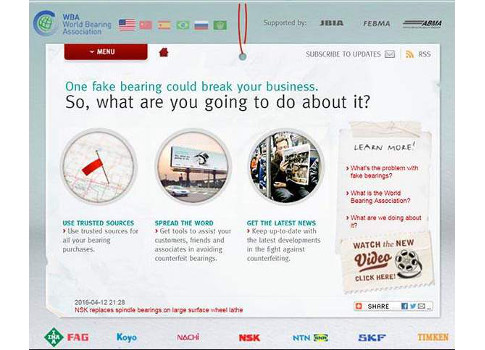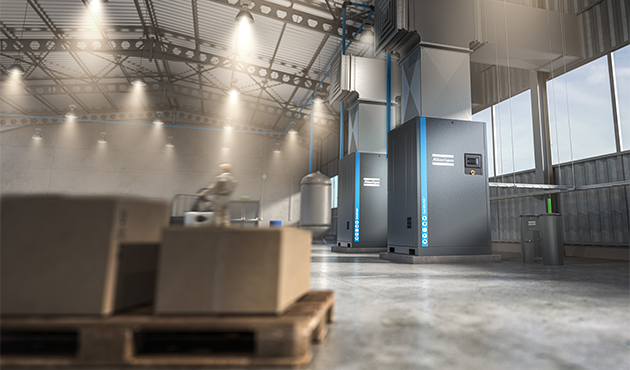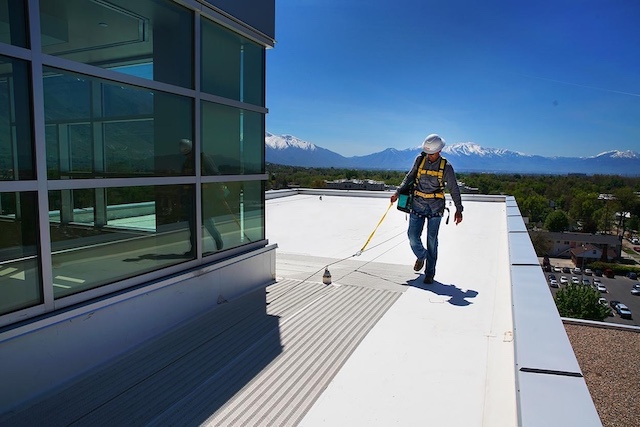Counterfeit bearings are becoming a major problem for companies and they pose dangers to machines as well as workers and there are steps and organizations out there looking to stem the tide.

Counterfeiting is a problem that affects many manufacturers around the world. Typically, any counterfeit item is going to be of lower quality because it is made of lower quality components and manufactured to lower standards.
The reason counterfeit items are made is that they are a cheap imitation, yet they appear as if they are a well-known brand. In fact, some of the counterfeits look more like the real item than the actual item itself.
Although counterfeiting may be a problem that affects many items, something that you should be concerned about is counterfeit bearings. This is becoming an increasing problem, and if you are paying for counterfeit bearings, you are getting cheated.
According to some reports, the majority of counterfeit bearings are manufactured in China. There is a rise of this type of counterfeiting due to companies being in a globalized market. Advances in technology also make it easier to make counterfeits, although it does not keep them up to the standards of the original.
What’s the issue with counterfeit bearings?
There are many issues associated with using counterfeit bearings. The bottom line, however, is you are not getting what you are paying for. If you are purchasing something you think is manufactured by one company but it comes from somewhere else, it is likely you are getting a lower quality item.
Another major issue associated with counterfeit bearings are motor failures. It is more likely for them to wear, resulting in motor failure and perhaps other difficulties. Although you may think that you are saving yourself money by purchasing counterfeit bearings, in reality, you are likely paying more money in the long run.
It is tough to tell if you are using genuine bearings from the manufacturer or if you are using counterfeit bearings by simply looking at them. Many of the counterfeit bearings are made to appear legitimate, and they may even be more genuine looking than the real bearings. Of course, not every business that buys counterfeit bearings recognizes that they are making such a purchase. They may buy from a vendor, thinking that they are getting bearings from the real source when in fact, they are getting them from a third-party distributor.
Before you purchase any machine parts, make sure you can trust the distributor. It is important to only use companies who are authorized distributors and if you have any doubt as to whether the bearings are genuine or not, have a bearing manufacturer check them out. Purchasing counterfeit bearings is far too costly in the long run. Always ensure the company purchases genuine parts from someone trustworthy.
The fight against counterfeit bearings
There is a significant effort to stop the distribution of counterfeit bearings in their tracks.
The World Bearing Association (WBA) is a non-profit industrial organization founded 10 years ago by three major, regional bearing associations: the American Bearing Manufacturers’ Association (ABMA), the Federation of European Bearing Manufacturers’ Associations (FEBMA) and the Japan Bearing Industrial Association (JBIA).
The group promotes the common, lawful interests of the world bearing industry, such as open economic engagement, sustainable development and the protection of legal rights of companies.
They have enlisted many major corporations to join their fight and have illustrated the harmful impact fakes can have on a facility.
David Manney is a marketing administrator at L&S Electric. This article originally appeared on L&S Electric Watts New Blog. L&S Electric is a CFE Media content partner.



